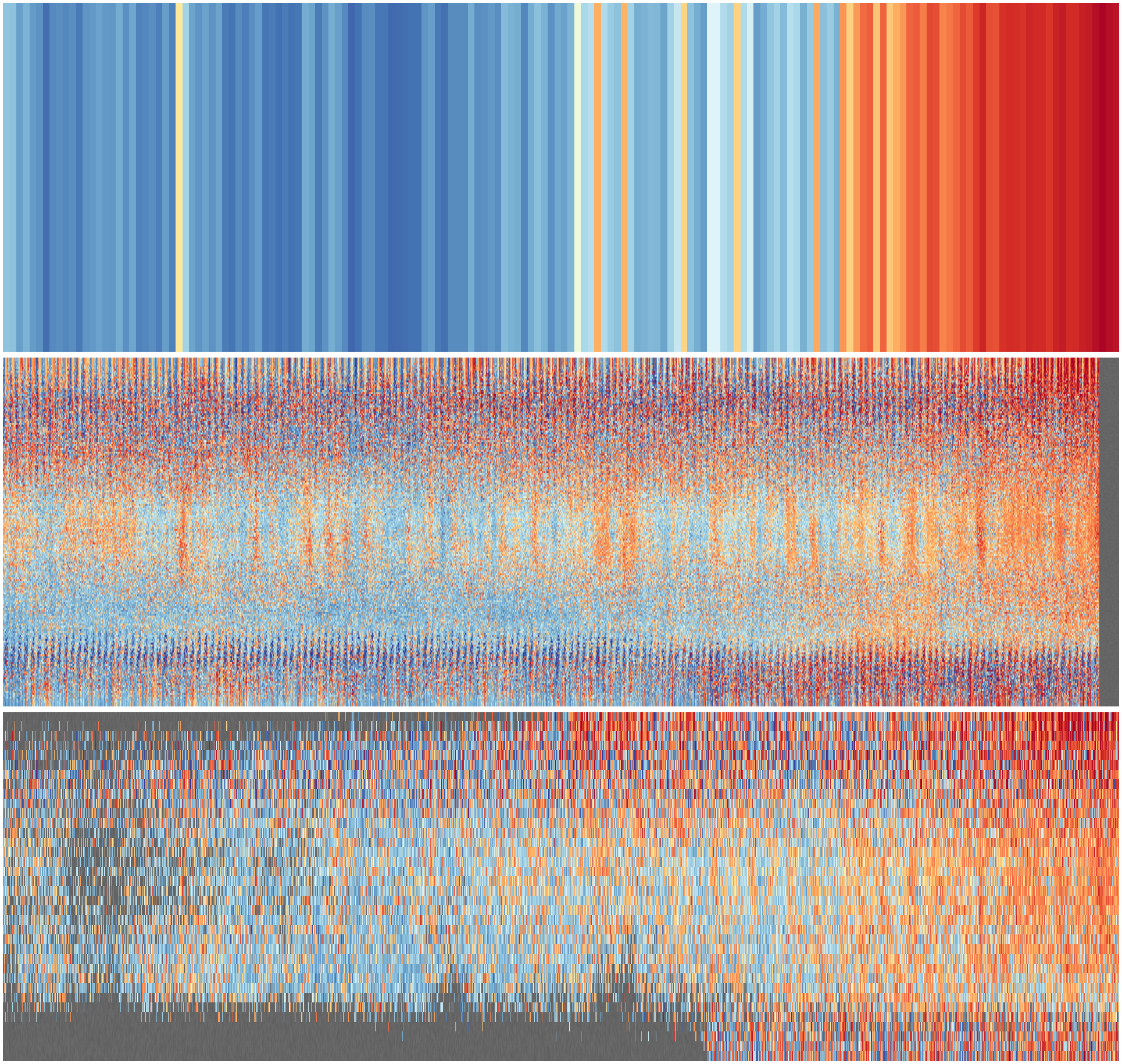#!/usr/bin/env python
# Make an extended climate-stripes image from 20CRv3
# Monthly, resolved in latitude, sampling in longitude, ensemble mean.
# Regridded to the EUSTACE grid.
import os
import iris
import numpy
import datetime
import matplotlib
from matplotlib.backends.backend_agg import FigureCanvasAgg as FigureCanvas
from matplotlib.figure import Figure
from matplotlib.patches import Rectangle
from matplotlib.lines import Line2D
start=datetime.datetime(1851,1,1,0,0)
end=datetime.datetime(2018,12,31,23,59)
from get_sample import get_sample_cube
egrid = iris.load_cube(("%s/EUSTACE/1.0/1969/"+
"tas_global_eustace_0_19690312.nc") %
os.getenv('SCRATCH'),
iris.Constraint(cube_func=(lambda c: c.var_name == 'tas')))
# Make the climatology
n=[]
for m in range(1,13):
mc=iris.Constraint(time=lambda cell: cell.point.month == m and \
cell.point.year > 1960 and \
cell.point.year < 1991)
h=iris.load_cube('%s/20CR/version_3/monthly_means/air.2m.mon.mean.nc' %
os.getenv('SCRATCH'),
iris.Constraint(name='air_temperature') & mc)
n.append(h.extract(mc).collapsed('time', iris.analysis.MEAN))
# Process in batches or we'll run out of memory.
rst = numpy.random.RandomState(seed=None)
dts=[]
ndata=None
for year in range(start.year,end.year+1,10):
ey = min(year+10,end.year)
(ndyr,dtyr) = get_sample_cube(datetime.datetime(year,1,1,0,0),
datetime.datetime(ey,12,31,23,59),
climatology=n,
new_grid=egrid,rstate=rst)
dts.extend(dtyr)
if ndata is None:
ndata = ndyr
else:
ndata = numpy.ma.concatenate((ndata,ndyr))
# Plot the resulting array as a 2d colourmap
fig=Figure(figsize=(19.2,6), # Width, Height (inches)
dpi=300,
facecolor=(0.5,0.5,0.5,1),
edgecolor=None,
linewidth=0.0,
frameon=False,
subplotpars=None,
tight_layout=None)
canvas=FigureCanvas(fig)
matplotlib.rc('image',aspect='auto')
def add_latline(ax,latitude):
latl = (latitude+90)/180
ax.add_line(Line2D([start.timestamp(),end.timestamp()],
[latl,latl],
linewidth=0.5,
color=(0.8,0.8,0.8,1),
zorder=200))
# Add a textured grey background
s=(2000,100)
ax2 = fig.add_axes([0,0.05,1,0.95],facecolor='green')
ax2.set_axis_off() # Don't want surrounding x and y axis
nd2=numpy.random.rand(s[1],s[0])
clrs=[]
for shade in numpy.linspace(.42+.01,.36+.01):
clrs.append((shade,shade,shade,1))
y = numpy.linspace(0,1,s[1])
x = numpy.linspace(0,1,s[0])
img = ax2.pcolormesh(x,y,nd2,
cmap=matplotlib.colors.ListedColormap(clrs),
alpha=1.0,
shading='gouraud',
zorder=10)
# Plot the stripes
ax = fig.add_axes([0,0.05,1,0.95],facecolor='black',
xlim=((start+datetime.timedelta(days=1)).timestamp(),
(end-datetime.timedelta(days=1)).timestamp()),
ylim=(0,1))
ax.set_axis_off()
ndata = numpy.transpose(ndata)
s=ndata.shape
y = numpy.linspace(0,1,s[0]+1)
x = [(a-datetime.timedelta(days=15)).timestamp() for a in dts]
x.append((dts[-1]+datetime.timedelta(days=15)).timestamp())
img = ax.pcolorfast(x,y,numpy.cbrt(ndata),
cmap='RdYlBu_r',
alpha=1.0,
vmin=-1.7,
vmax=1.7,
zorder=100)
for lat in [-60,-30,0,30,60]:
add_latline(ax,lat)
# Add a date grid
axg = fig.add_axes([0,0,1,1],facecolor='green',
xlim=((start+datetime.timedelta(days=1)).timestamp(),
(end-datetime.timedelta(days=1)).timestamp()),
ylim=(0,1))
axg.set_axis_off()
def add_dateline(ax,year):
x = datetime.datetime(year,1,1,0,0).timestamp()
ax.add_line(Line2D([x,x], [0.04,1.0],
linewidth=0.5,
color=(0.8,0.8,0.8,1),
zorder=200))
ax.text(x,0.025,
"%04d" % year,
horizontalalignment='center',
verticalalignment='center',
color='black',
size=14,
clip_on=True,
zorder=200)
for year in range(1860,2020,10):
add_dateline(axg,year)
fig.savefig('20CRv3_E-grid.png')
